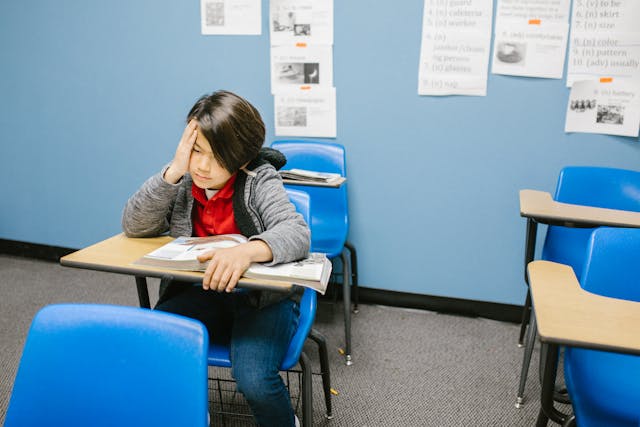If you have a child with depression, it is likely that you have already gone through several consultations with child and adolescent psychologists. With all your trust, your child will have put it in their hands to try to improve emotionally before this terrible and dangerous mental illness: depression. Actually, it is necessary, and a person with depression should go to a consultation with a specialist in psychology or psychiatry (depending on the severity).
In addition, it is also important to keep in mind that you can also help a child with depression at home. If you feel that there is nothing to do away from home, you are very wrong! Family help is essential in all cases, so henceforth you need to consider all these points to take care of your child with depression.
Compassion and empathy
It is important that you talk to your child about his feelings with compassion and empathy. If you go for a walk, play board games, or play something with him, your child can relax and express his feelings well. Ask your child questions that require open-ended answers other than a simple ‘yes’ or ‘no.’ This way, you can have more meaningful conversations.
Never judge him if he doesn’t feel like talking or if he’s honest or open with you. If you judge or criticize him about it, they will shut you down and will never be honest for fear of your criticism. Moments of silence in conversations don’t have to be a problem; you think that sometimes you need to process your thoughts and emotions during your time together.
Relaxing and anti-stress activities
For younger children, there are simple ways to help you relax. You can offer play opportunities that they like, such as painting, with play dough, sand, etc. To play, It is important that you think of activities that your child is particularly interested in and that are age appropriate.
It is important that you set aside screen time for these activities. Technology time should be limited, but screens won’t help your child be less depressed; quite the contrary. This can often be an outlet that prevents them from revealing more about their feelings and emotions.
Limit screen time
Considering the previous point, it is necessary that you limit your child’s screen time (television, mobile, tablet, computer, video games, etc.). Any electronic device that seems to interfere with your child’s interaction should be restricted. Children with higher screen time are at greater risk for anxiety and depression.
You can provide her with better alternative activities to replace the screen time, such as going for a walk, doing crafts, drawing, building, riding a bike, and/or playing outside, etc. Some children may be so dependent on their screen time as a source of entertainment that they may need you to join them in alternative activities to engage in the activities.
It’s no use telling your child with depression: ‘go play. If he has no friends or is used to sitting down every day after school and playing video games, he just won’t do what you ask him to do. He needs me to do it with him. Go out with your child and take a walk in nature. Take him to a movie in the cinema or take part in alternative activities.
Help your child with difficult problems.
Your child needs your help to break homework into smaller, more manageable pieces. Or do you need assemblies etc. Assignment Help Glasgow is the only one that is great to help. Children with depression often struggle to tackle big problems and tasks and find them overwhelming. Helping them by breaking the task down into smaller, more manageable tasks will help increase your confidence when they master the small tasks.
Small tasks mastered lead to larger tasks mastered over time. It is a process over time that needs patience and a willingness to improve. This does not mean that you have to do things for your child; you have to teach him to do them. Just help him understand that what he sees as big can be broken down into other smaller things to start dealing with it.
House with a warm and positive atmosphere
Reduce or eliminate negative attitudes, language, and conversations that are not positive. Also, avoid raising your voice, passive-aggressive behavior, and any form of physical violence in the home.
Make your home a safe haven for your child rather than an atmosphere that is always volatile (in words, emotions, or physical). Make it a calm environment that makes your child feel safe mentally, emotionally, and physically.
Look on the bright side and encourage your good emotions.
Point out the positive in situations rather than the negative. You must be a role model who sees the positive in life when you speak, in your words, and in your actions. Resist the urge to express your negative thoughts when they occur. as your child can feed his emotions and learn from your words.
It is also important that you help your child talk about how he feels and that you respect these feelings. Listen patiently to what he tells you and take all his words seriously. Don’t minimize their feelings. Express empathy and compassion when he expresses his feelings for you. Help him use ‘I feel’ affirmations when expressing his emotions.
It is also important that you spend time during the day, every day, to spend quality time with your child. It may take a limited amount of time, but it should be at least 20 minutes a day to be in full concentration with your child, leaving the mobile phone and any other task or distraction completely aside.
Your child should be a good example for you and teach him to lead a physically and mentally healthy lifestyle. Talk about any topic without fear, without being open about it. In the face of any obstacle, always look for solutions… your child needs you more than ever.
Recommended: How I Improve My Assignment Help Online Service In One Day?











